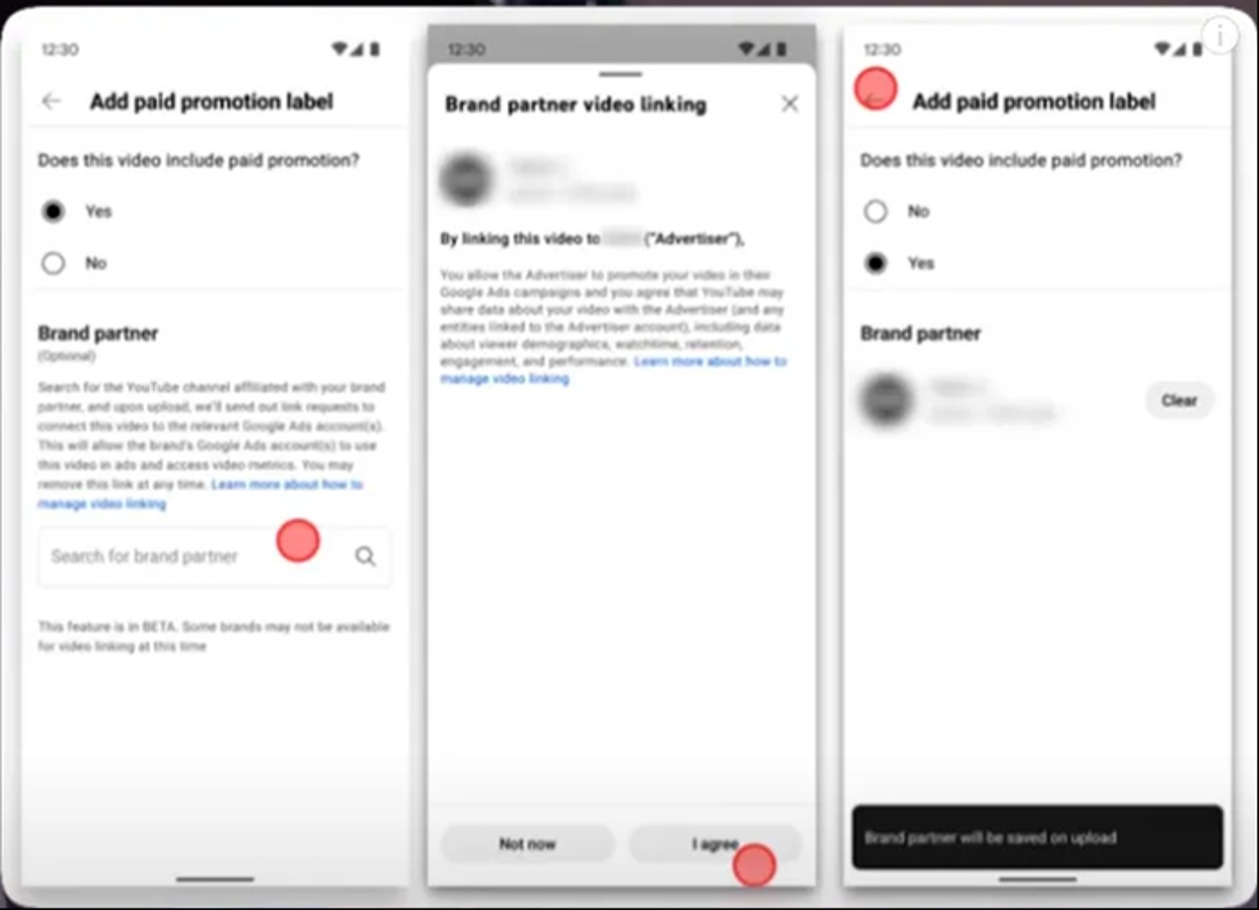YouTube Enables Shorts Creators to Request Brand Partnerships

YouTube’s looking to give Shorts creators another pathway to monetization, while it’s also adding new Data Story cards that aim to provide more insight into initial video performance.
The main update is a new process that’ll enable Shorts creators to prompt brands for potential partnerships, essentially sponsoring their Shorts clips.
As explained by YouTube:
“Up until now, creators who featured brands in their content could get individual video linking requests from advertisers via emails from the YouTube main app, and via YouTube Studio notifications, which they then have the ability to accept or decline. Accepting the request allows the advertiser to view the organic video performance in Google Ads, and confirms reuse rights for the advertiser. Now, we’re launching the ability for creators in YPP with more than 4,000 subscribers to send video linking requests for Shorts to advertisers via YouTube Studio.”
So rather than the advertiser connecting with the creator, this will work the other way around, with Shorts creators able to post brand-related content, then ask the brand if they might be interested in using it in their promotion efforts.
“YouTube will recommend creator-initiated tagged content to brands. If they choose to run ads, these creator-initiated links will act in the same way as advertiser-initiated links, which confirm rights between brands and creators, and give advertisers the ability to view organic video performance in Google Ads.”
As such, this isn’t a direct link to monetization, i.e. the creator doesn’t get a cut of any ads run using their content. But it will help creators establish brand partnerships, and confirm pre-established ones, which could provide another means for Shorts creators to convert their work into paid posting.
And with Shorts engagement continuing to rise in the app, it could also be a good opportunity for brands to get more trending content to help promote their products.
YouTube’s also launching an updated “Data Story” element, which will provide an overview of your latest video’s performance over its first 24 hours.
As explained by YouTube:
“Up until now, creators who featured brands in their content could get individual video linking requests from advertisers via emails from the YouTube main app, and via YouTube Studio notifications, which they then have the ability to accept or decline. Accepting the request allows the advertiser to view the organic video performance in Google Ads, and confirms reuse rights for the advertiser. Now, we’re launching the ability for creators in YPP with more than 4,000 subscribers to send video linking requests for Shorts to advertisers via YouTube Studio.”
So rather than the advertiser connecting with the creator, this will work the other way around, with Shorts creators able to post brand-related content, then ask the brand if they might be interested in using it in their promotion efforts.
“YouTube will recommend creator-initiated tagged content to brands. If they choose to run ads, these creator-initiated links will act in the same way as advertiser-initiated links, which confirm rights between brands and creators, and give advertisers the ability to view organic video performance in Google Ads.”
As such, this isn’t a direct link to monetization, i.e. the creator doesn’t get a cut of any ads run using their content. But it will help creators establish brand partnerships, and confirm pre-established ones, which could provide another means for Shorts creators to convert their work into paid posting.
And with Shorts engagement continuing to rise in the app, it could also be a good opportunity for brands to get more trending content to help promote their products.
YouTube’s also launching an updated “Data Story” element, which will provide an overview of your latest video’s performance over its first 24 hours.
As you can see in this example, YouTube’s new Data Story will share notes on the key drivers of the performance of a video over its initial access period.
YouTube first launched Data Stories back in 2022, as a simple means to highlight insights into relevant metrics, and ensure creators are aware of such in their process.
This update aims to build on that, by keeping creators updated on key aspects of their content efforts, especially in that all-important initial posting period.
Finally, YouTube’s also testing out a new “Most Relevant” filter for comments, which is intended to highlight opportunities for engagement.
The option will highlight questions and other comment types that could provide opportunity for response, though YouTube hasn’t provided a heap of insight into the qualifiers for such as yet.
Ideally, that could help you optimize your engagement time, and ensure that you don’t miss opportunities to connect with your viewers.
YouTube says that it’s testing this with a small number of creators on Studio mobile and desktop.
